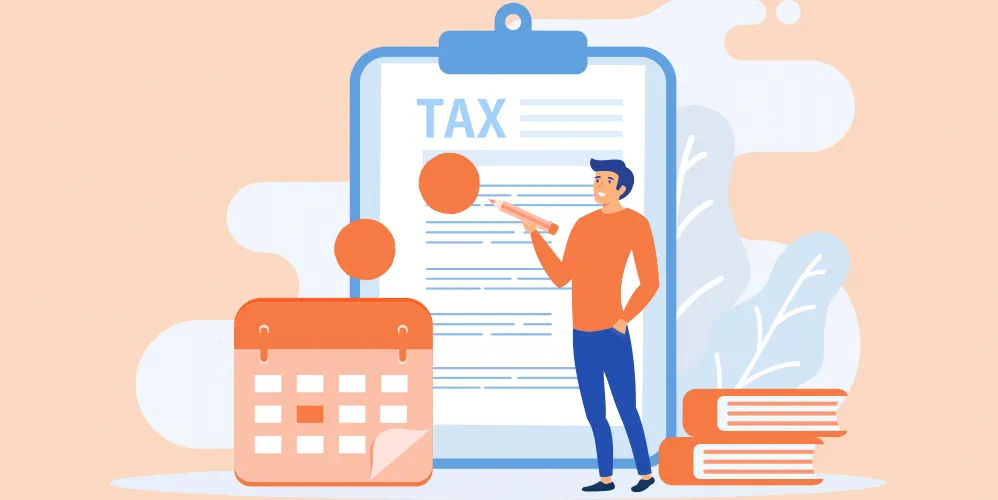
Features and Benefits of Investing in Recurring Deposit
21 Mar 2023

Table of Content
The best way to grow your corpus and begin investing is to put money into an investment regularly. Investments that call for regular installments not only help to build up savings, but they also enforce discipline among the investors. One of the most popular investments that meets the description above is a recurring deposit or RD. Read this handy guide to know what are the features and advantages of RD account.
Features of Recurring Deposit Account
- A recurring deposit account can be opened for as less as Rs. 100 depending on the bank.
- The installment in most recurring deposit accounts is fixed and has to be deposited on the same day every month. Some schemes allow quarterly or half yearly installments.
- All the recurring deposit installments mature on the same day.
- The tenure for a recurring deposit is flexible and depends on the depositor. Banks may have a minimum tenure for an RD, but the ultimate tenure fixed depends on the depositor and his need for funds.
- The rate of interest for recurring deposits is around the same rate as a fixed deposit account.
- No tax is deducted on the interest earned on a recurring deposit account if the amount of interest does not exceed Rs. 10,000. A depositor can submit Form 15G/15H for exemption from tax deduction. Form 15G/15H states that the depositor’s income is below the no tax limit and the bank should not deduct tax on the interest earned.
- The depositor can avail a loan against the recurring deposit up to 95% of the recurring deposit amount.
- The interest earned on a recurring deposit amount is added to the taxable income of the depositor.
Benefits of Recurring Deposit Account
A recurring deposit account is an excellent investment option, especially for those who may not have a large amount to invest. There are several benefits of investing into a recurring deposit account which are as follows:
- Goal based saving: One of the best advantages of a recurring deposit is that it can be used as a tool for goal-based savings. Using a recurring deposit calculator , you can find out exactly what the total maturity amount is. This is especially useful for short term fund requirements, such as education expenses or saving for a wedding or travel expenses. A recurring deposit can help you grow your savings in a very systematic manner.
- Loan against RD: While it is not allowed to withdraw funds from a recurring deposit before maturity, it is possible to take a loan against the balance in a recurring deposit. Most banks give out loans against 90% of the recurring deposit balance.
- Saving for Minors: Banks allow parents and legal guardians to open a recurring deposit account for minors. This can be used as an effective way to save for the child’s education expenses. The recurring deposit can mature just before the child’s school year is set to begin, thus meeting the need for school fees.
- Tax break for senior citizens: Under Section 80TTB of the Income Tax Act, senior citizens get a deduction of Rs. 50,000 for interest earned. This includes interest on fixed deposit, recurring deposit, savings account and any other type of interest. This makes a recurring deposit account that much more attractive to invest in since the interest will get a deduction.
- TDS relief: Banks do not deduct tax on recurring deposit interest unless the total interest on all deposits crosses Rs. 10,000 in a particular financial year. However, by submitting Form 15G/15H, a depositor can get relief from TDS provisions.
Conclusion
We understood what the features and benefits of investing in recurring deposit are. With this information, you can decide whether a recurring deposit is the right investment for you.
Popular Articles
Related Articles










-
Disclaimer
The contents of this article/infographic/picture/video are meant solely for information purposes and do not necessarily reflect the views of Bank of Baroda. The contents are generic in nature and for informational purposes only. It is not a substitute for specific advice in your own circumstances. Bank of Baroda and/ or its Affiliates and its subsidiaries make no representation as to the accuracy; completeness or reliability of any information contained herein or otherwise provided and hereby disclaim any liability with regard to the same. The information is subject to updation, completion, revision, verification and amendment and the same may change materially. The information is not intended for distribution or use by any person in any jurisdiction where such distribution or use would be contrary to law or regulation or would subject Bank of Baroda or its affiliates to any licensing or registration requirements. Bank of Baroda shall not be responsible for any direct/indirect loss or liability incurred by the reader for taking any financial decisions based on the contents and information mentioned. Please consult your financial advisor before making any financial decision.
How to Open a Recurring Deposit Account?
What is RD account is pretty clear but how to open recurring deposit account? For opening an RD account, the investor needs to visit the nearest bank or post office and fill out the application form. Certain basic documents shall be provided like identity documents, address proofs, bank detail etc.
Different Types of Recurring Deposit
Recurring Deposit (RD) is an easy and convenient way to start regular savings. In this, a fixed amount is deposited every month and earns interest at a predetermined rate. RD can be opened with any Bank, Post Office or NBFC by any person, a senior citizen, a minor above 10 years with a guardian, partnership firms, clubs, associations and NRIs. The rate of interest varies across financial institutions and the tenure ranges from 6 months to 10 years.

